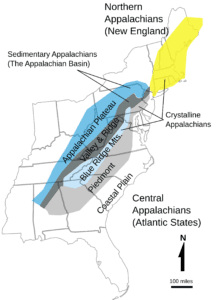American polarization

Here we are, in greater Boston. About half the people who live here were born here. A worthy chunk of the rest came for college or better jobs. Where did Boston area residents come from? What did they leave behind?
Some come from foreign lands. Some from cities and towns in within prospering economies in America. Others come from small towns, where there are no jobs that afford them the “Boston lifestyle.”
If they are like J.D. Vance, they left parts of America where the manufacturing economy tanked, and was not replaced with other economic engines. He writes in a recent Op Ed: here
In recent months, I’ve frequently found myself in places hit hard by manufacturing job losses, speaking to people affected in various ways. Sometimes, the conversation turns to the conflict people feel between the love of their home and the desire to leave in search of better work.
 That is the stress of the emigrant and the immigrant. Leave the people and landscapes of your formative years, leave the culture of your family. For what? For a chance at economic prosperity.
That is the stress of the emigrant and the immigrant. Leave the people and landscapes of your formative years, leave the culture of your family. For what? For a chance at economic prosperity.
Those who leave for college, then stay here for a job are part of a well-worn track of brain-drain out of small-town America. Some go to college elsewhere, but are drawn to the big high-tech and bio-tech opportunities here. Some just come for the jobs. Many stay.
In his memoir, Hillbilly Elegy, Vance tells of his growing up in an Appalachian family, and his road to “success.” But that success came at a price. His life in the Silicon Valley exposed him to people who write off his homeland and its people.
And when we’re surrounded by polarized, ideologically homogeneous crowds, whether online or off, it becomes easier to believe bizarre things about them. This problem runs in both directions: I’ve heard ugly words uttered about “flyover country” and some of its inhabitants from well-educated, generally well-meaning people.
I hear Eastern Massachusetts people who sound a lot like those Silicon Valley folks that were dismissing Vance’s homeland. These are common things I read and hear here: “I couldn’t live in the south.” “How can he stand to live in the middle of nowhere?” “I feel bad for the people I read about who live in Red States.”
Some even insult the people there. Were those people smarter, or more ambitious (Massachusetts folks sometimes say), they’d leave. How do you think that sounds to someone who grew up in the south, or in the middle of nowhere, or in a Red State?
J.D. Vance is stuck between two worlds: his polarized White Appalachian homeland and his polarized well-educated, economically successful, liberal California friends. Now he’s going back to Ohio. He wants to work at changing the economy there. He gives a shout-out to others who have gone home to work in the economies they grew up in. He’s headed there to work against opiate addiction. Could you do that? (PS, we have a huge opiate addiction problem here, too.)
 It is an important experiment he is doing. I wish him success. Real success. And happiness.
It is an important experiment he is doing. I wish him success. Real success. And happiness.